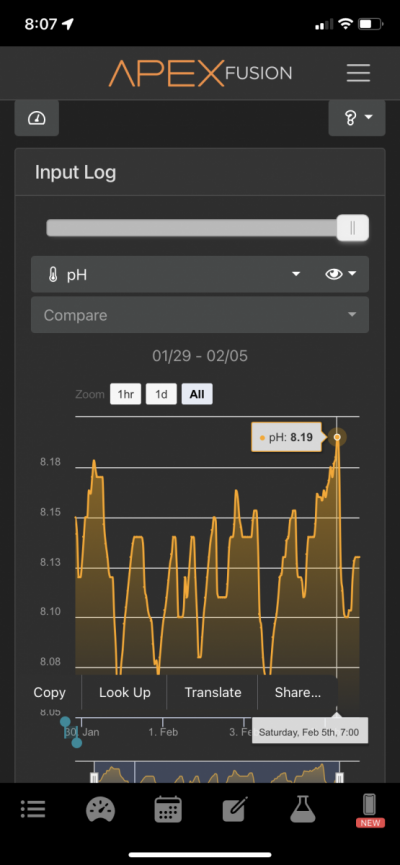- Joined
- Apr 9, 2019
- Messages
- 603
- Reaction score
- 520
I’ve attached a photo of my PH through Apex. I do carbon dose @ 7:00 am but that is because my PH is the highest at that point.
This doesn’t make sense to me as I always believed PH was higher during the day? I run a refugium throughout the night with fern Caulerpa.
Curious to hear your thoughts @Randy Holmes-Farley

This doesn’t make sense to me as I always believed PH was higher during the day? I run a refugium throughout the night with fern Caulerpa.
Curious to hear your thoughts @Randy Holmes-Farley






















